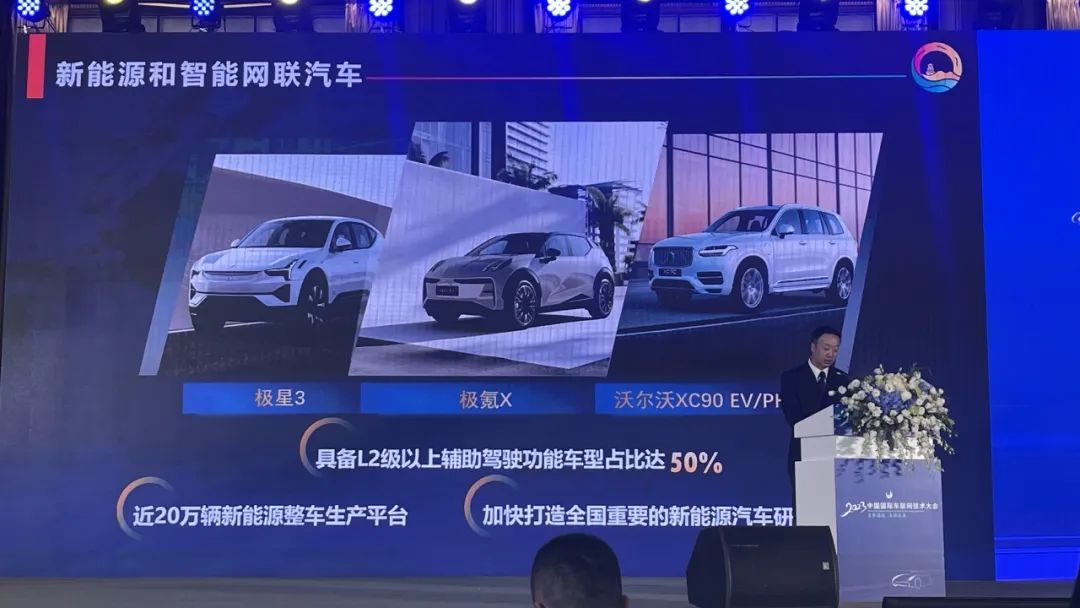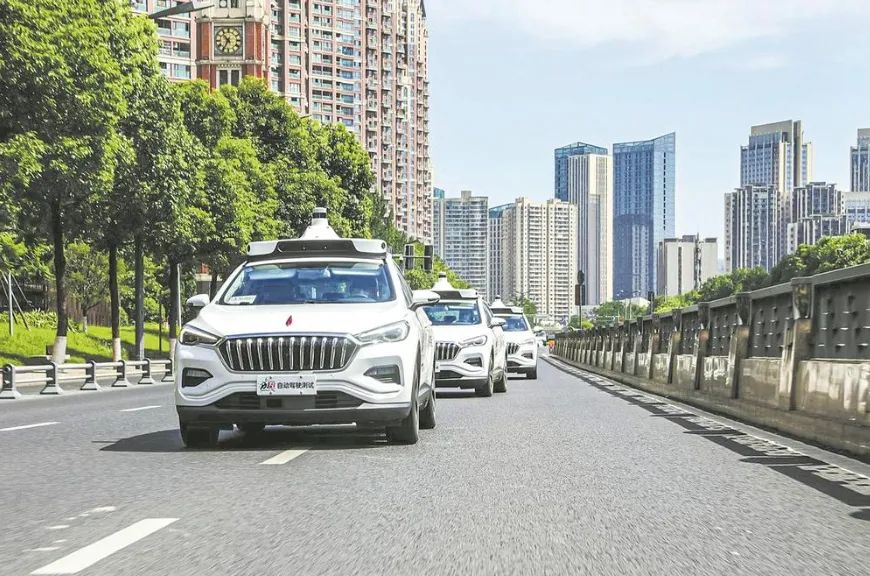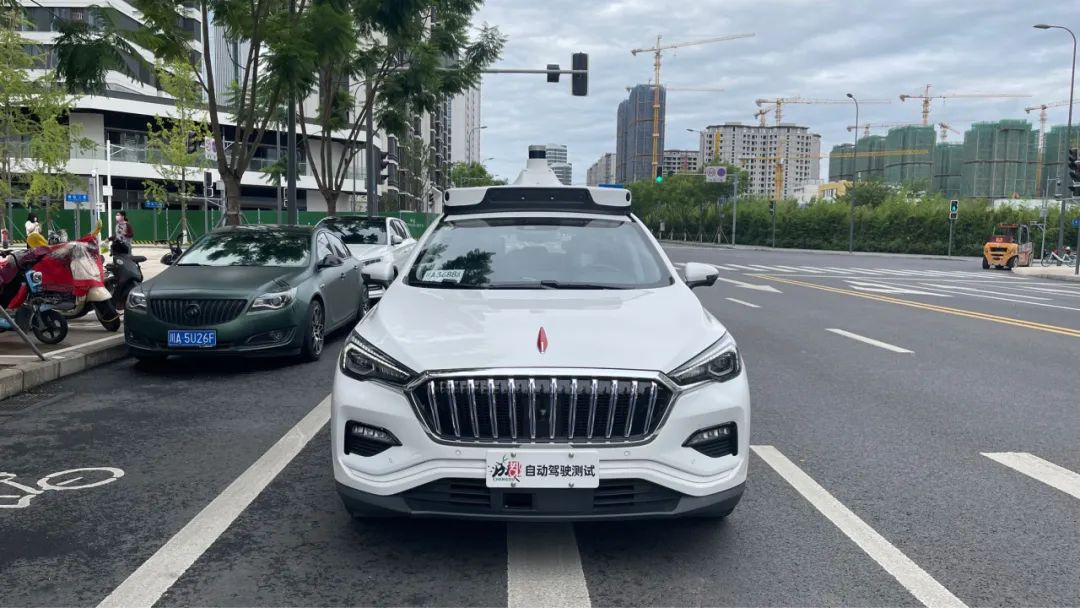
Recently, the 2023 China International Internet of Vehicles Technology Conference was held in Chengdu. This conference, themed “Building Momentum for the Future of Vehicle Connectivity,” focused on hot topics such as smart connected vehicles, intelligent transportation, 5G and innovative applications of the Internet of Vehicles, vehicle-road collaboration, intelligent driving, and information security in the Internet of Vehicles, analyzing the latest developments and future trends in vehicle connectivity technology and industry.

The future of the automotive industry is divided into two halves: the first half is electric vehicles, and the second half is smart connected vehicles. According to the latest data from the Ministry of Public Security, as of the end of September 2023, the total number of motor vehicles in the country reached 430 million, including 330 million cars and 18.21 million new energy vehicles. With the rapid proliferation of new energy vehicles, new technologies such as the Internet of Vehicles have become a focal point of attention.

The Internet of Vehicles connects vehicles with roads, other vehicles, people, and application platforms through sensors, onboard devices, and communication modules installed in vehicles, utilizing mobile communication technology, automotive navigation systems, smart terminal devices, and information network platforms. It enables comprehensive network connectivity and analyzes, processes, and mines the collected data through the information network platform, achieving safer, richer, more comfortable, and more efficient vehicle operation and information services.
What kind of transformation will the Internet of Vehicles bring to intelligent transportation?
Chen Shanzhi, chairman of the Internet of Vehicles Committee of the China Communications Society, introduced at the conference that the rapid growth of automobiles has led to a series of problems such as traffic congestion, accidents, and environmental pollution. The Internet of Vehicles makes vehicles “smarter” through technology, enabling single-vehicle intelligence and CBS communication functions, while “smart roads” will have perceptive devices to enhance driving safety and efficiency.
“The future of the automotive industry is divided into two halves: the first half is electric vehicles, and the second half is smart connected vehicles.”
Chen Shanzhi believes that the current Internet of Vehicles and smart connected vehicles are at a turning point from the cultivation period to the growth period, and will be commercially scaled next year.
“The Internet of Vehicles is rapidly proliferating.” Academician Zhang Ping of the Chinese Academy of Engineering made a similar statement, noting that in recent years, significant progress has been made in technologies related to intelligent connected vehicles, autonomous driving, and vehicle-road collaboration.
This year, the number of autonomous passenger vehicles is expected to reach 8 million, with autonomous driving accounting for about 13% of total passenger mileage. By 2040, the number of autonomous passenger vehicles is expected to reach about 13.5 million, with autonomous driving accounting for 66% of total passenger mileage.


During this year’s Chengdu Universiade, the highly “futuristic” autonomous vehicles attracted the attention of many athletes in the Universiade Village. The vehicles automatically drive according to road conditions, following road markings and traffic lights, and will stop to yield when encountering pedestrian crossings.
It is reported that Sichuan has formed an ecosystem of smart connected vehicle enterprises centered around Chengdu.
From an industrial clustering perspective, leading domestic and international companies such as the China Academy of Information and Communications Technology, China Automotive Research, China Electric Power, Siemens, and Desay SV have developed high-quality products such as smart cockpits and autonomous mining trucks, which are widely used in domestic and international scenarios. At the same time, infrastructure improvements are accelerating, with Chengdu completing the intelligent transformation of 550 intersections, building over 6,200 smart multifunctional poles, and deploying 80,000 roadside communication units, initially establishing a vehicle-road collaboration Internet of Vehicles. In addition, Chengdu has also conducted road testing applications for smart connected vehicles, opening 500 kilometers of road testing, and creating a direct connection channel for the Universiade, including applications for delivery, sales, sightseeing, and smart parking.


With the continuous development of the Internet of Vehicles, intelligent driving is becoming increasingly accessible to citizens. Currently, autonomous driving can be experienced first in Chengdu.
It is understood that Baidu’s autonomous driving service platform “Luobo Kuaipao” has officially launched in Chengdu High-tech Zone, providing autonomous driving services to citizens. The “Chengdu 5G Smart City Intelligent Driving Project” jointly developed by Baidu and Chengdu High-tech Zone is the first demonstration project of autonomous driving + vehicle-road collaboration on public roads in Sichuan Province.
According to the plan, Luobo Kuaipao will demonstrate operations within a 10 square kilometer area of the Xinchuan Innovation Technology Park in Chengdu High-tech Zone, initially deploying 8 autonomous vehicles, operating from 9:00 AM to 5:00 PM. Users can call a vehicle through the Luobo Kuaipao APP, and although it is autonomous driving, a safety officer will be present to ensure safety, providing services for commuting and short-distance connections for users in the area.
In the future, Luobo Kuaipao will continue to expand routes, recommend boarding points and time slots, further meeting users’ daily travel needs, allowing autonomous vehicles to move from the park to the roads.
Source: Chengdu Daily





